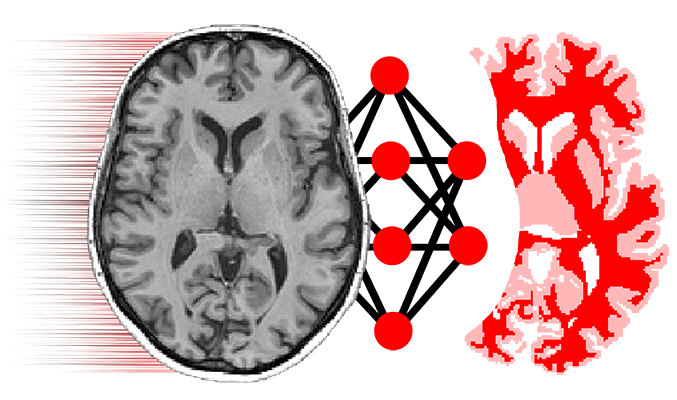niftynet.application.base_application module¶
Interface of NiftyNet application
-
class
BaseApplication[source]¶ Bases:
objectBaseApplication represents an interface.
Each application
type_strshould support to use the standard training and inference driver.-
REQUIRED_CONFIG_SECTION= None¶
-
SUPPORTED_ACTIONS= set(['inference', 'train', 'evaluation'])¶
-
is_validation= None¶
-
readers= None¶
-
sampler= None¶
-
net= None¶
-
optimiser= None¶
-
gradient_op= None¶
-
output_decoder= None¶
-
get_file_lists(data_partitioner)[source]¶ This function pull the correct file_lists from the data partitioner depending on the phase :param data_partitioner:
specifies train/valid/infer splitting if neededReturns: list of file lists of length 2 if validation is needed otherwise 1
-
initialise_dataset_loader(data_param=None, task_param=None, data_partitioner=None)[source]¶ this function initialise self.readers
Parameters: - data_param – input modality specifications
- task_param – contains task keywords for grouping data_param
- data_partitioner – specifies train/valid/infer splitting if needed
Returns:
-
initialise_sampler()[source]¶ Samplers take
self.readeras input and generates sequences of ImageWindow that will be fed to the networksThis function sets self.sampler.
-
initialise_network()[source]¶ This function create an instance of network and sets
self.netReturns: None
-
connect_data_and_network(outputs_collector=None, gradients_collector=None)[source]¶ Adding sampler output tensor and network tensors to the graph.
Parameters: - outputs_collector –
- gradients_collector –
Returns:
-
interpret_output(batch_output)[source]¶ Implement output interpretations, e.g., save to hard drive cache output windows.
Parameters: batch_output – outputs by running the tf graph Returns: True indicates the driver should continue the loop False indicates the drive should stop
-
add_inferred_output_like(data_param, task_param, name)[source]¶ This function adds entries to parameter objects to enable the evaluation action to automatically read in the output of a previous inference run if inference is not explicitly specified.
This can be used in an application if there is a data section entry in the configuration file that matches the inference output. In supervised learning, the reference data section would often match the inference output and could be used here. Otherwise, a template data section could be used.
Parameters: - data_param –
- task_param –
- name – name of input parameter to copy parameters from
Returns: modified data_param and task_param
-
set_network_gradient_op(gradients)[source]¶ create gradient op by optimiser.apply_gradients this function sets
self.gradient_op.Override this function for more complex optimisations such as using different optimisers for sub-networks.
Parameters: gradients – processed gradients from the gradient_collector Returns:
-
set_iteration_update(iteration_message)[source]¶ - At each iteration
application_drivercalls: output = tf.session.run(variables_to_eval, feed_dict=data_dict)
to evaluate TF graph elements, where
variables_to_evalanddata_dictare retrieved fromapplication_iteration.IterationMessage.ops_to_runandapplication_iteration.IterationMessage.data_feed_dict. in addition to the variables collected by output_collector; implemented inapplication_driver.run_vars)This function (is called before
tf.session.runby the driver) provides an interface for accessingvariables_to_evalanddata_dictat each iteration.Override this function for more complex operations according to
application_iteration.IterationMessage.current_iter.- At each iteration
-
add_validation_flag()[source]¶ add a TF placeholder for switching between train/valid graphs, this function sets
self.is_validation.self.is_validationcan be used by applications.Returns:
-
action¶ A string indicating the action in train/inference/evaluation
Returns:
-
is_training¶ return – boolean value indicating if the phase is in training
-
is_inference¶ return – boolean value indicating if the phase is inference
-
is_evaluation¶ return – boolean value indicating if the action is evaluation
-
